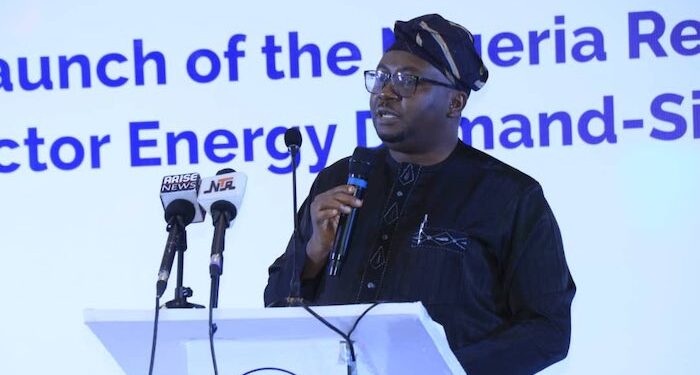Kaduna, Nigeria – Nigeria’s Minister of Power, Chief Adebayo Adelabu, has revealed that the country must invest $10 billion annually for the next 20 years to ensure a stable, reliable, and sustainable electricity supply.
Speaking during the commissioning of a 2.5MW solar hybrid power plant at the Nigerian Defence Academy (NDA) in Kaduna on Tuesday, Adelabu cited a decades-long infrastructure deficit as the core challenge plaguing Nigeria’s power sector.
“For us to achieve functional, reliable, and stable electricity in Nigeria, we need not less than $10 billion annually for the next 10 to 20 years,” Adelabu stated.
He stressed that years of neglect, underinvestment, and weak grid maintenance had left Nigeria’s power sector significantly underdeveloped.
Energising Education & Rural Nigeria
The newly commissioned project at the NDA is part of the Energising Education Programme (EEP) Phase II, under the Rural Electrification Agency (REA). It is designed to deliver uninterrupted power to military training facilities, academic buildings, and staff quarters.
REA Managing Director, Abba Aliyu, described the project as a “turning point” for energy access in learning institutions, noting that the agency is focused on delivering “social impact, sustainable development, and national innovation.”
“EEP Phase II is not just an energy project; it is a national mission,” Aliyu said.
Rural Electrification Fund Phase III Unveiled
Also on Tuesday, the Federal Government, through the REA, launched Phase III of the Rural Electrification Fund (REF)—a critical initiative aimed at expanding off-grid electricity access to Nigeria’s most underserved communities.
At a grant agreement signing and finance workshop in Abuja, REA announced that the REF Call 3 would:
-
Attract over ₦5.6 billion in private investment
-
Deliver 9MW of clean energy
-
Provide ₦6.4 billion in subsidies to developers
-
Benefit 31,500+ households, schools, health centres, and businesses
-
Create over 6,000 jobs
-
Cut carbon emissions by 39,000+ tons annually
“REF Call 3 is designed to scale impact, not just numbers,” said Aliyu. “We are delivering energy to empower communities.”
REA’s Growing Impact & Future Ambitions
Since inception, the REF has made measurable progress:
-
124 mini-grids
-
25,000+ solar home systems
-
183 communities electrified
-
16.6MW of installed capacity
-
26,000+ jobs created
-
91,720 tons of CO₂ emissions avoided
Executive Director of REF, Doris Uboh, highlighted the program’s evolution, from REF Call 1 deploying 1MW and reaching 24,000 users, to REF Call 2, which supported 51 mini-grids and 3.9MW of energy generation.
Looking ahead, REA plans to roll out the e-HEART initiative, a landmark energy project aiming to:
-
Deploy 3,700 mini-grids
-
Electrify rural healthcare, schools, farms, and transit systems
-
Deliver 370MW of renewable energy
-
Engage 37 states, with 15 already committed
“e-HEART is poised to be Nigeria’s largest decentralised energy project,” Uboh stated. “We are pairing capital with community, vision with execution.”
She also urged developers to meet timelines and quality benchmarks, warning that REA would strictly enforce grant agreement conditions.
Conclusion:
With massive infrastructure investment needs and renewed decentralisation through the new Electricity Act, Nigeria is pivoting toward long-term energy security. The dual push—rural electrification and institutional energy independence—positions the country for a new era of power sector transformation.


